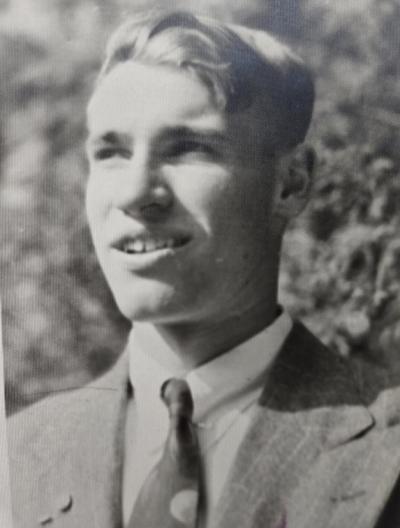
This is not an obituary or an attempt to describe Bill's magnetic personality or his sharp and merry (sometimes caustic) wit. It is simply an attempt to fill in some gaps that were largely eclipsed by his controversial public persona. July 5 was the 15th anniversary of his death.
Bill was widely known for his activism and resistance to unjust policies/practices in the Roman Catholic Church and well as the U.S. Government. He paid the price of his outspoken convictions by being expelled from the Jesuit Community. But significant parts of Bill's life and achievements are relatively unknown to many.
He was born on September 5, 1931 and died on July 5, 2010. His mother - a Unitarian - died of a staph infection when he was a toddler. He was raised by his Catholic grandparents in Scituate, MA. His older sister was raised by their Unitarian grandparents.
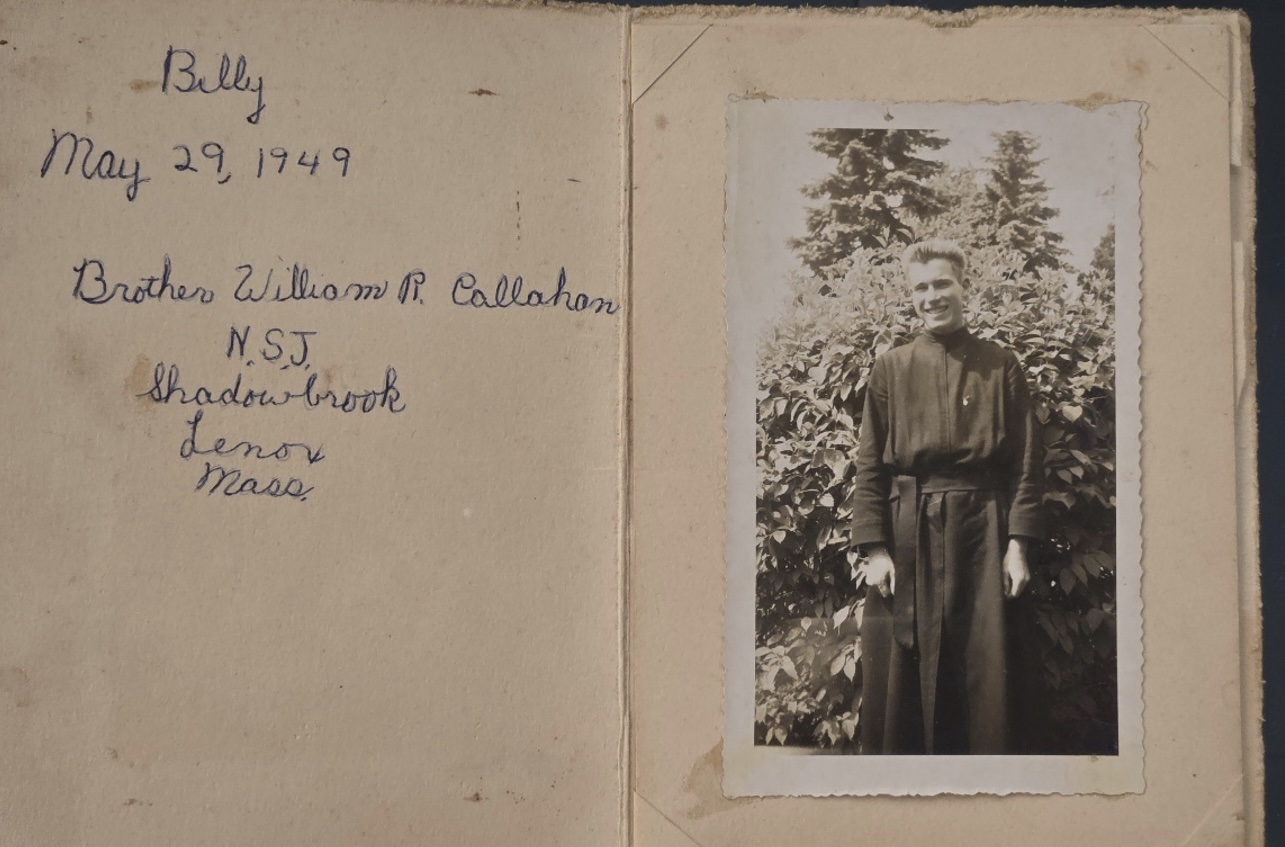
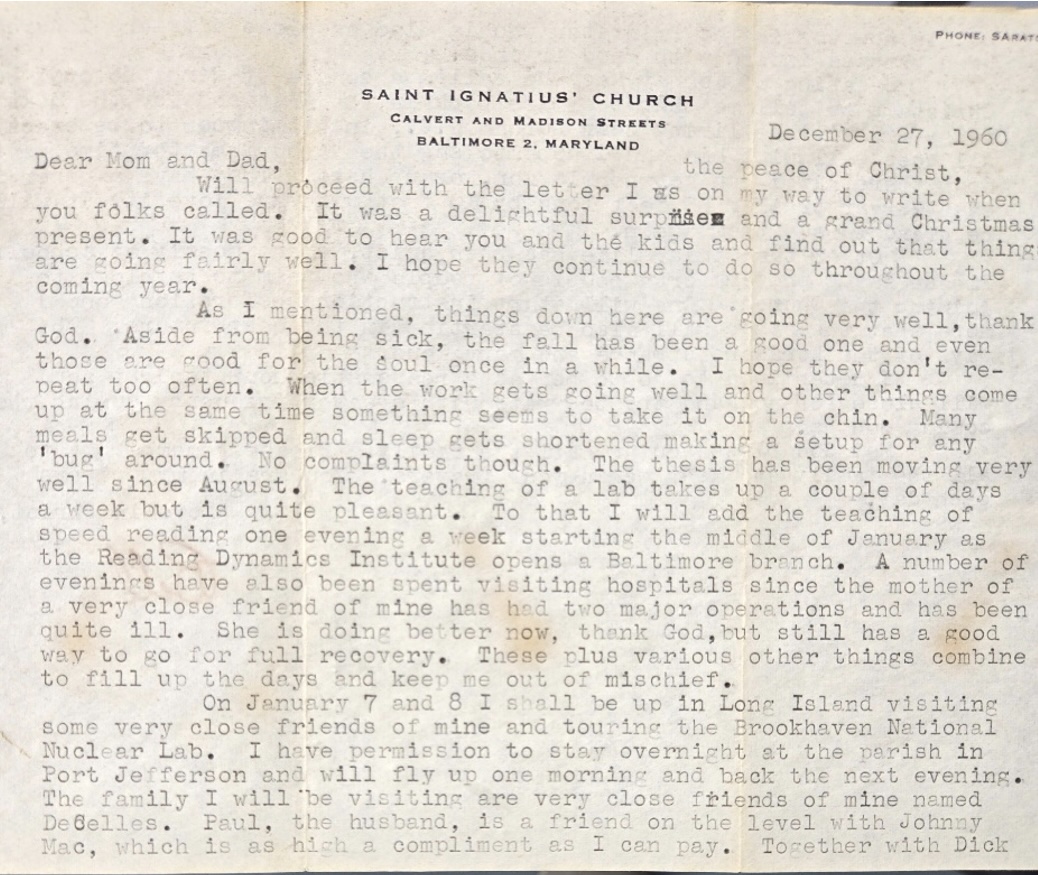
This exposure to two such different denominations imbued him with a broad view of religion before ecumenism became a 'thing.' He was a faithful altar boy and the parish priest took him under his wing. At 17, shortly after graduation from Boston College High School, Bill entered the Jesuit novitiate and began the lengthy process of becoming an ordained Jesuit priest.
During his scholasticate in Shadowbrook (a rambling summer estate formerly owned by the Carnegie family) he revived an abandoned apple orchard, much to the consternation of his fellow scholastics who had to eat his overabundant crops. He achieved this by using the state-of-the-art chemicals, insecticides and herbicides, deemed the source of his eventual Parkinsons disease.
Bill was competitive. Even though he had never played the game, Bill entered a local golf tournament with the goal of winning. He practiced. Hard. He won. (In later years, he returned to the game). He learned to play the guitar. He competed in basketball. He wanted to go into Boston with other scholastics to support inner-city poverty programs, but the superior said they had no transportation. He found a cab company that would give them free rides.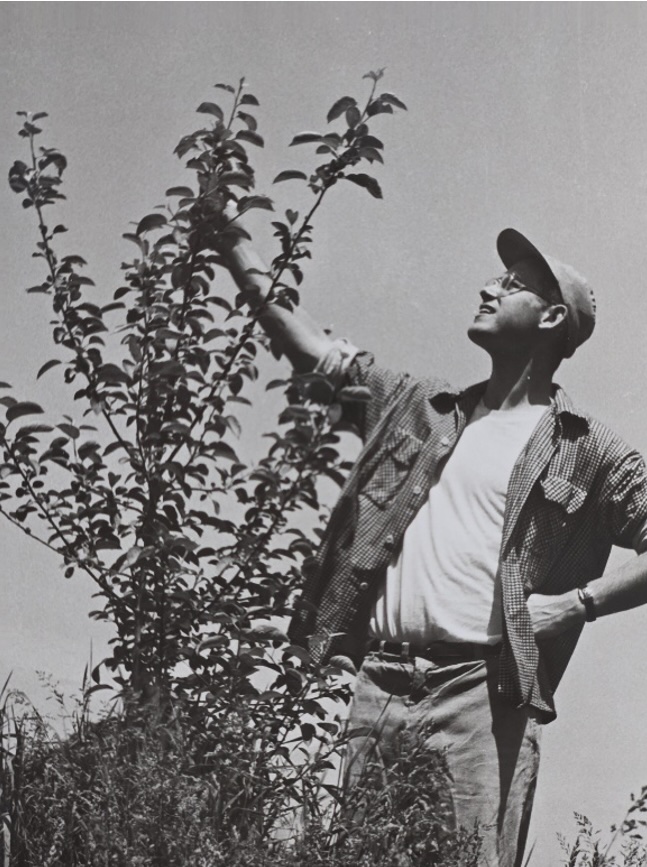 .
. 
Because of his fierce determination to achieve whatever goal he had, he became known as "The Hammer," a moniker in Jesuit circles that followed him to his death.
Bill's deepest wish was to become an agronomist, but his superiors differed. Jesuit universities needed physicists, so he was sent to Johns Hopkins University in 1962. He claimed that he wasn't a brilliant scholar, but his doctoral thesis indicates otherwise.
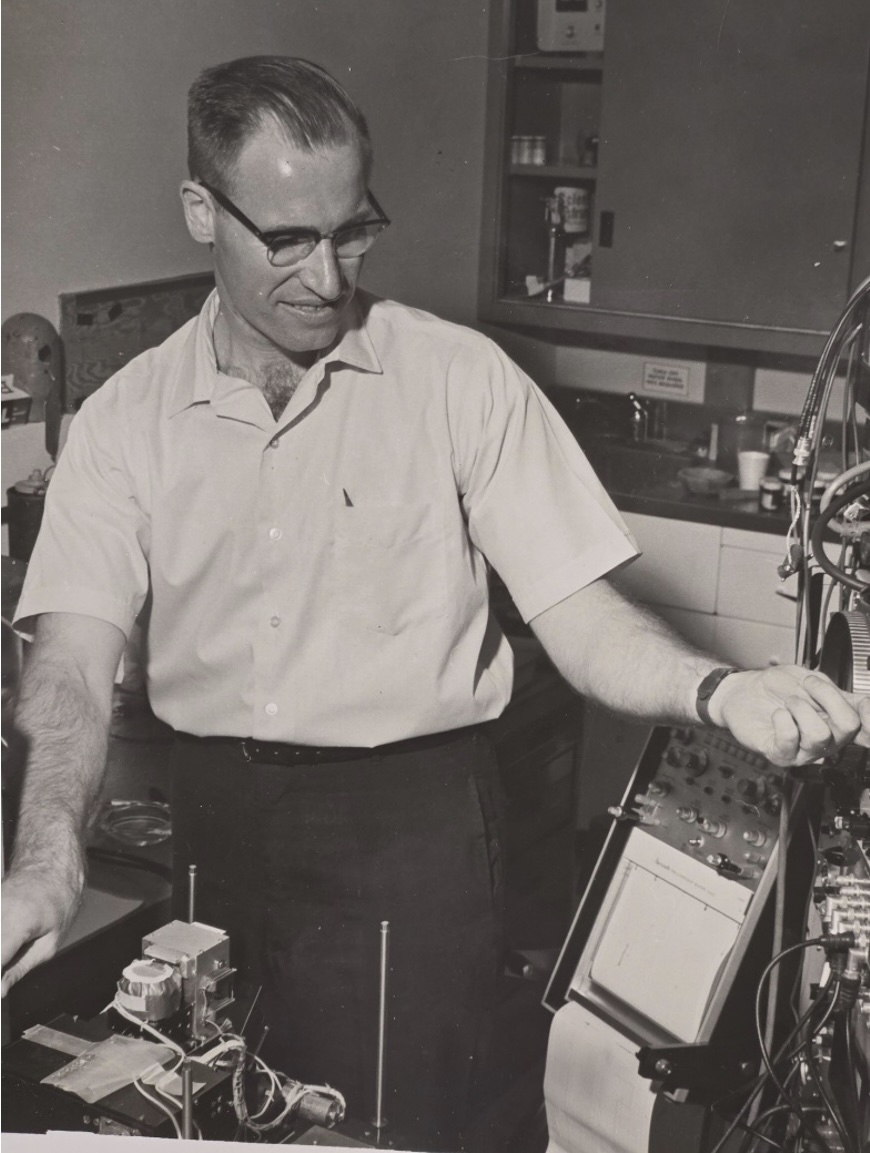 Atomic Spectroscopy was his field of study. He described it in simple terms: the bending of light rays. After hundreds, maybe thousands of glass slides and experiments, we may thank him for laying the foundation that led to modern day wonders of colonoscopies, endoscopies, and other related medical procedures. So, the next time you're prepping for a colonoscopy and swearing at the utter indignity, blame Bill. Or maybe, thank him.
Atomic Spectroscopy was his field of study. He described it in simple terms: the bending of light rays. After hundreds, maybe thousands of glass slides and experiments, we may thank him for laying the foundation that led to modern day wonders of colonoscopies, endoscopies, and other related medical procedures. So, the next time you're prepping for a colonoscopy and swearing at the utter indignity, blame Bill. Or maybe, thank him.
While pursuing his doctorate at Hopkins, Bill worked for NASA at the Goddard Space Center doing experiments on weather satellites in the Mojave Desert where he claimed to have killed a rattle snake.
He took an Evelyn Woods speed reading class - and soon was teaching it.
Bill liked to say that he went to the 32nd grade.
From Baltimore, he moved to Fairfield University to teach physics. Bill was swept up by the Vatican Council which began in 1962 and enacted liturgical changes. Enter his pastoral persona -- guitar playing, a powerful singing voice, and experimental approach to conducting liturgies. He was ordained in 1965 and reveled in the campus life of ministry and worship.
Next, Bill went to Boston to work as planning director for the New England Jesuit province. He then co-founded the Center of Concern in Washington, D.C. in 1971. It was a progressive Jesuit think-tank that closed in 2018.
No matter where he lived, Bill forged a space in which to indulge his primary passion for farming. He would say that he dug his worries into the ground and reaped delicious food.
Along with farming, running was a staple. For decades, he ran daily to collect the New York Times. He challenged himself to participate in the Army 10-mile race which he successfully completed for a dozen or more years, even when his Parkinson's was reasonably advanced.
Pets: a praying mantis and a pigeon.
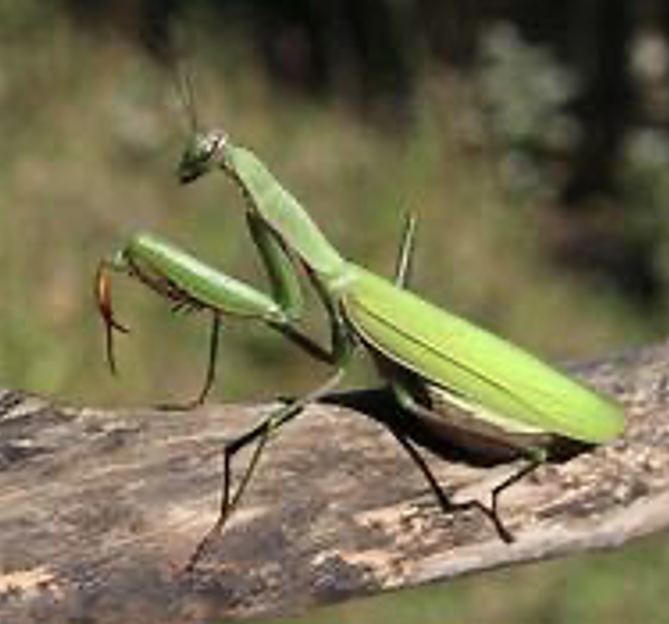 .
. 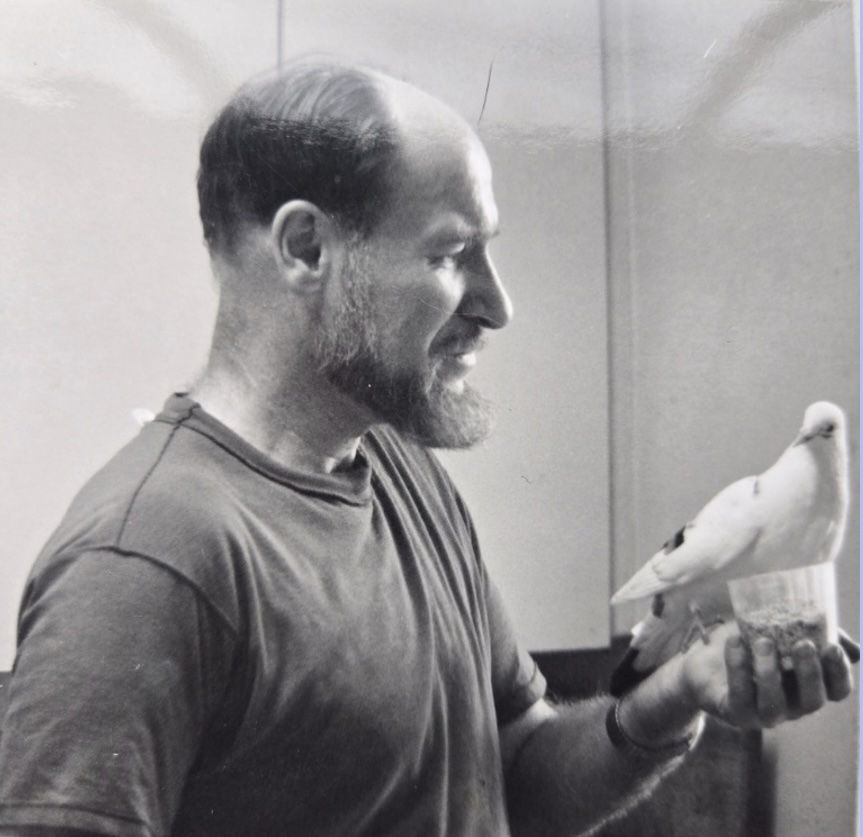
Bill's final stop was to co-found the Quixote Center with Dolly in 1976 where they merrily chased windmills with their friend, Don Quixote. The Center will celebrate its 50th year in 2026.

THE END (almost)
Obituaries:


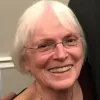
Comments
Hurley William (not verified)
Bill Callahan. What an inspiring CATHOLIC. If only we had more. Pray for me Bill. I
Regina Bannan (not verified)
Dolly, this is beautiful. The pain persists because of the great love. Honoring Bill's memory helps us all. Regina
Kathy Wright (not verified)
What a pleasure it was to read this article by Dolly. Even though I worked at the Quixote center there was much about Bill that I did not know and I loved learning it. He really was an amazing person and I’m glad for the time that I had with him. He and Dolly were a formable duo setting out to make great changes in the world.
Deanna Rose von... (not verified)
Thank you for the full story, beginning to end. What a great human being!
Katherine Hoyt (not verified)
I'm wiping away tears to be able to write after reading Dolly's tribute and the others and seeing the photos. So many memories of Quixote Center/Nicaragua Network lunches, great conversations and walking in Bill's orchard. I also remember a meeting Bill, Rita Clark, and I had with George Vickers at WOLA, trying to convince them to oppose all police and military aid to a particular country (maybe El Salvador). We were the total rejection folks while they were the "seat at the table" folks. We didn't convince them but we fought the good fight!
Susan Sendelbach (not verified)
Thank you for this loving, expanded story of Bill and your life and work with him. I remember 1975 when you and Bill found me at CUA as the 1st and probably only diocesan bishop sponsored woman seminarian at Theological College. There I was fighting windmills of a patriarchal church somewhat on my own, and you too came to encourage, support and let me know that someone believed in me as priest. I only wish now that I had your courage and had made more good trouble. Your kindness and many fabulous works to further acceptance of women, gays and all who are oppressed was courageous and filled with faith and love. I send you and all who have furthered the work and vision of Quixote Center, Center for Concern, Priests for Equality and all your missions my deepest gratitude.
Sandra Caballero (not verified)
Bill was an inspiration. As a leader at times he seemed harsh and demanding but he was mostly demanding with himself. He was complex like many inspirational leaders. He was not perfect, but his imperfections made him stronger not weaker. Bill was a good man which in today’s world seems to be a rarity more than a generality.
Joe Iannone (not verified)
Bill celebrated Sunday liturgy for members of Good Shepherd Parish in Alexandria, VA when they were in exile with a petition to the Vatican in continue shared responsibility which a new bishop of Arlington rejected, including women distributing Communion in 1976. My wife, Mercedes, and I were Directors of Religious Education in GSP and Bill was a source of spiritual encouragement to all. Joe Iannone
Saul Wolf (not verified)
Dolly, that brought a smile to my reading such a wonderful tribute to Bill. I remember the Army 10 miler--Bill ultimately made it but not without significant effort that year with his advancing Parkinsons. You both were such excellent writers, communicators-- a requirement for fundraising anywhere but particularly at the Quixote Center. You both came of age at unique time within the Catholic Church. Vatican II seemed to truly inspire a generation--not only to think differently but also to take action. My parent's stories are similar-- from the simple joy of growing your own food, to social justice, to the profoundly radical idea of opening one's heart to people different than you. I find that both inspiring and remarkable. Reflecting 20 years later, today I live 10 miles from 2 separate Benedictine monasteries in central, MN (St. John's / St Ben's). The monasteries have dwindled in size and influence over the years--as have many across the country-- and of course church attendance is dropping. The Catholic Church is becoming, or already is, exceedingly irrelevant. While I wish it were otherwise, I don't find that to be particularly troubling. It has been the case, and I believe always will be the case, that individuals, by the way they live, act and speak, cause change to happen moreso than institutions. I see plenty of individuals, both lay people and ordained, that continue to tilt at windmills, in their mostly quiet modest ways. Don't lose hope.